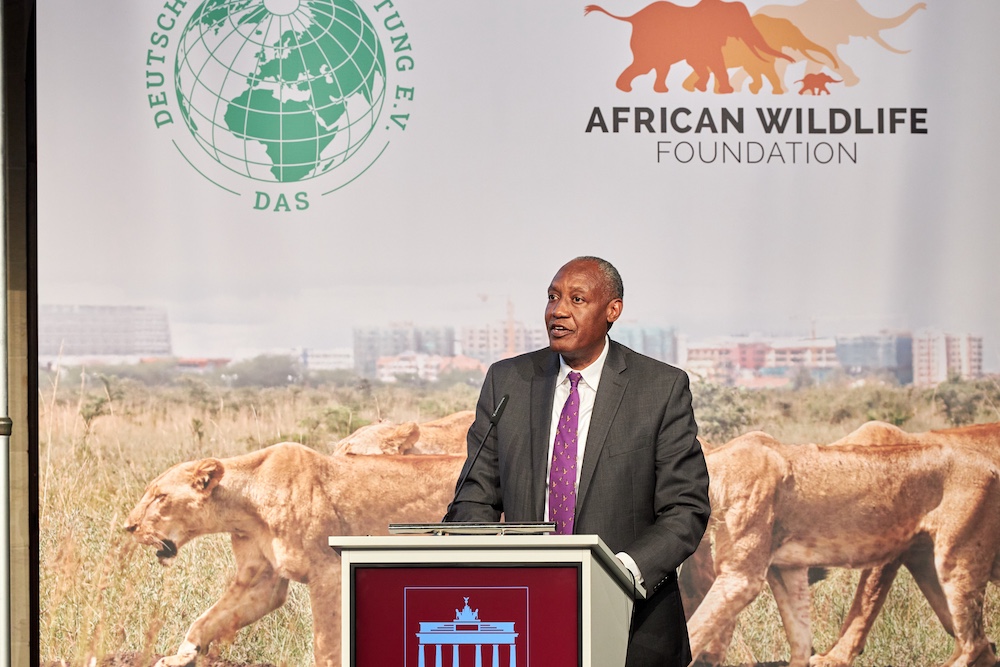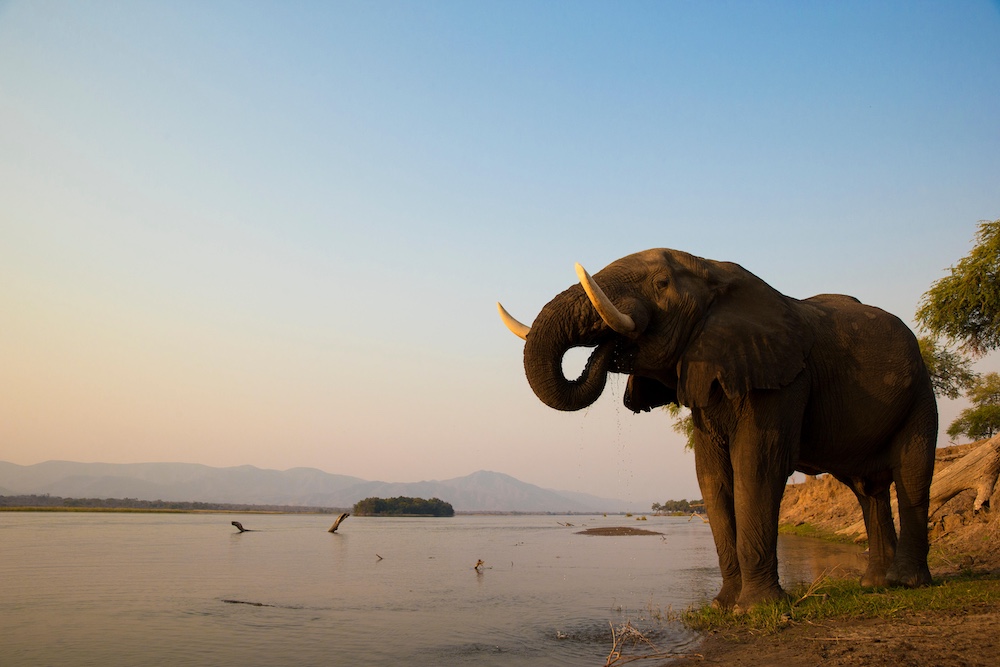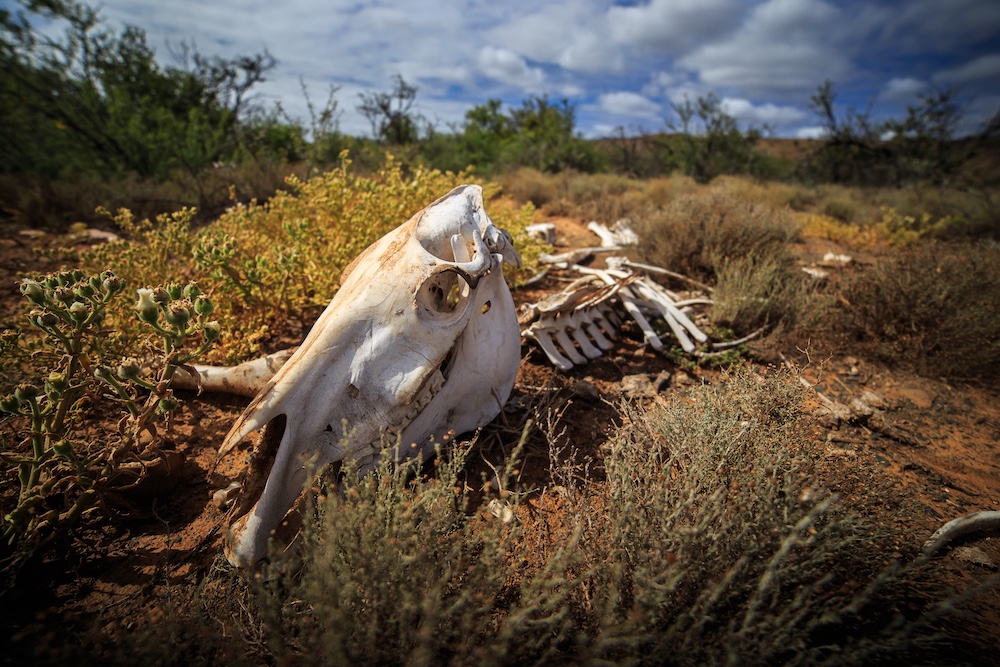2024: A Year of Wake-Up Calls, Lessons, and Resolve for African Conservation

Kaddu Sebunya at Africa Forum Berlin.
As the curtain falls on 2024, the year stands as a defining moment for Africa. This year revealed the continent’s extraordinary resilience, the urgency of addressing climate change, and the undeniable link between conservation and sustainable development. For the African Wildlife Foundation (AWF), this has been a year of hard truths and renewed determination to advance African-led solutions to conservation and development challenges.
Globally, the next US administration's focus on “America first,” shifts in the political climate in Germany, ongoing wars in Europe and the Middle East, and the rise of nationalism in some parts of the world signal turbulent times ahead. These dynamics have profound implications for financial mechanisms that support global stability and efforts to balance development with environmental sustainability. The fragility of these mechanisms, coupled with the growing need for multilateral cooperation, underscores the importance of building resilience within Africa through local leadership and sustainable solutions.
The State of African Wildlife: Signs of Hope Amid Ongoing Challenges
Reports released in 2024 paint a complex picture of African wildlife. Gains in population numbers for some species showcase the triumph of conservation, where communities and governments align their efforts. For example, elephant numbers in East Africa have increased by 15% over the past decade, reflecting the success of anti-poaching initiatives and community-led conservation. Similarly, mountain gorillas in the Virunga Massif—a species once on the brink of extinction—have seen a 26% population rise over the same period, thanks to cross-border collaboration and tourism revenue reinvestment.
These successes coexist with sobering realities, highlighting the fragile balance between wildlife conservation and human survival in a changing climate. In Namibia and Zimbabwe, prolonged droughts have forced governments to implement wildlife management measures aimed at preserving resources for communities. Namibia managed populations by reducing over 700 animals, including elephants, zebras, and antelopes, both to provide meat for drought-affected populations and to reduce pressure on scarce grazing lands. Meanwhile, Namibia has reported alarming wildlife mortality rates, with up to 35% of species like antelopes and zebras perishing in certain parks due to drought. These crises underscore the urgent need for climate-resilient strategies that address both conservation and human welfare.
The state of African wildlife reflects broader societal challenges. Human-wildlife conflict is on the rise as competition for land intensifies. In Tanzania’s Manyara Ranch, where AWF successfully handed over conservation management to local communities, we’ve seen human-wildlife conflict decrease by 20% over five years, demonstrating that locally-led solutions work. But elsewhere, fragmented habitats have worsened conflict, threatening both livelihoods and biodiversity.

Climate Change’s Unequal Burden on Africa’s Biodiversity and Economies
The events of 2024 brought the full force of climate change into sharp focus. Floods inundated cities like Lagos, Nairobi, and Dubai, displacing millions and causing billions in damages. In Nigeria alone, over 3 million people were affected by record-breaking floods, with economic losses exceeding $2 billion. Nairobi’s urban infrastructure, ill-prepared for extreme weather, suffered over $1.5 billion in damages, highlighting the cost of inaction on climate resilience.
Meanwhile, Southern Africa endured its worst drought in decades. The Kariba Dam—an essential source of hydropower for Zimbabwe and Zambia—reached critically low levels, reducing electricity output by 60%. This plunged industries into crisis, caused rolling blackouts, and stymied economic growth. The drought also devastated ecosystems, leaving wildlife and communities competing for dwindling resources. Namibia reported its worst wildlife mortality rates in two decades, a stark reminder of how climate extremes are pushing Africa’s biodiversity to its limits.
The impact of climate change on Africa is disproportionately severe. Despite contributing less than 4% of global emissions, African nations bear the brunt of its consequences. Biodiversity, often hailed as Africa’s greatest natural asset, is increasingly under threat, eroding the continent’s ability to serve as a global carbon sink and a driver of sustainable development.
From COP16 to COP29: Missed Opportunities and Lessons for Africa
COP16 in Cali, Colombia, offered a rare moment of optimism for African conservation. African leaders played a key role in shaping resolutions to increase biodiversity funding, promote nature-based solutions, and recognize the rights of indigenous peoples. The reaffirmation of the Kunming-Montreal Global Biodiversity Framework’s (GBF) Target 19a—to mobilize $20 billion annually by 2025 and $30 billion by 2030—was seen as a win for the Global South, where resources for conservation are most urgently needed.
However, the momentum faltered at COP29 in Baku. The summit failed to deliver on critical issues, including commitments to phase out fossil fuels, secure additional biodiversity funding, and establish robust accountability mechanisms. For Africa, this was a stark reminder that global systems often fail to align with the continent’s realities.
These failures underscore the need for Africa to prioritize self-reliance in conservation financing. Mechanisms like carbon markets, ecotourism, and biodiversity credits are emerging as viable options, but they require urgent scaling and alignment with local contexts. The private sector also has a critical role to play, not only in financing but in driving innovation for sustainable development.

Mammal skull with skeleton in African plains
2024: A Year of Political Awakening
Amid these challenges, 2024 saw a wave of political and social change across Africa. Frustration with government inaction on climate and biodiversity issues led to widespread protests, particularly among youth. Notably in Kenya and Nigeria, youth-led movements successfully pressured policymakers to employ transparency and accountability measures in governance, showing the power of grassroots advocacy.
Globally, the youth-led uprisings were a response to governments' failure to act decisively on the pressing societal and economic issues arising such as femicides, extrajudicial killings, and corruption. This push for accountability signals a growing recognition that this generation intrinsically cares about economic security, cultural identity, environmental stewardship, and intergenerational equity.
2024 in Retrospect: A Call to Action
If 2024 has taught us anything, it is that time is running out to address the intertwined crises of biodiversity loss and climate change. The failures of COP29 highlight the urgent need for Africa to assert leadership, not just as a victim of global inaction but as a proactive player charting its own path.
For AWF, the path forward is clear: we must continue to invest in community resilience, amplify African voices on global platforms, and leverage innovative financing mechanisms to sustain conservation. The private sector must step up, not just as funders but as active participants in the continent’s sustainable development.
The stakes could not be higher. Africa’s wildlife, ecosystems, and people are at a tipping point. But with challenges comes opportunity. The resilience shown by African communities, the innovation of its youth, and the growing recognition of conservation as an economic driver give us hope. The world must rally behind Africa’s vision for a sustainable future, recognizing that its success is a shared triumph for humanity and the planet.
As we step into 2025, the time for promises has passed. The world must match Africa’s resolve with meaningful action—funding commitments that are fulfilled, private-sector engagement that drives innovation, and governance systems that prioritize people and the planet. For Africa, thriving wildlife and resilient communities are not optional—they are essential for the continent’s prosperity and the health of the planet.
The question is no longer whether action is needed, but whether we have the courage to act decisively. For Africa, for the world, and for future generations.